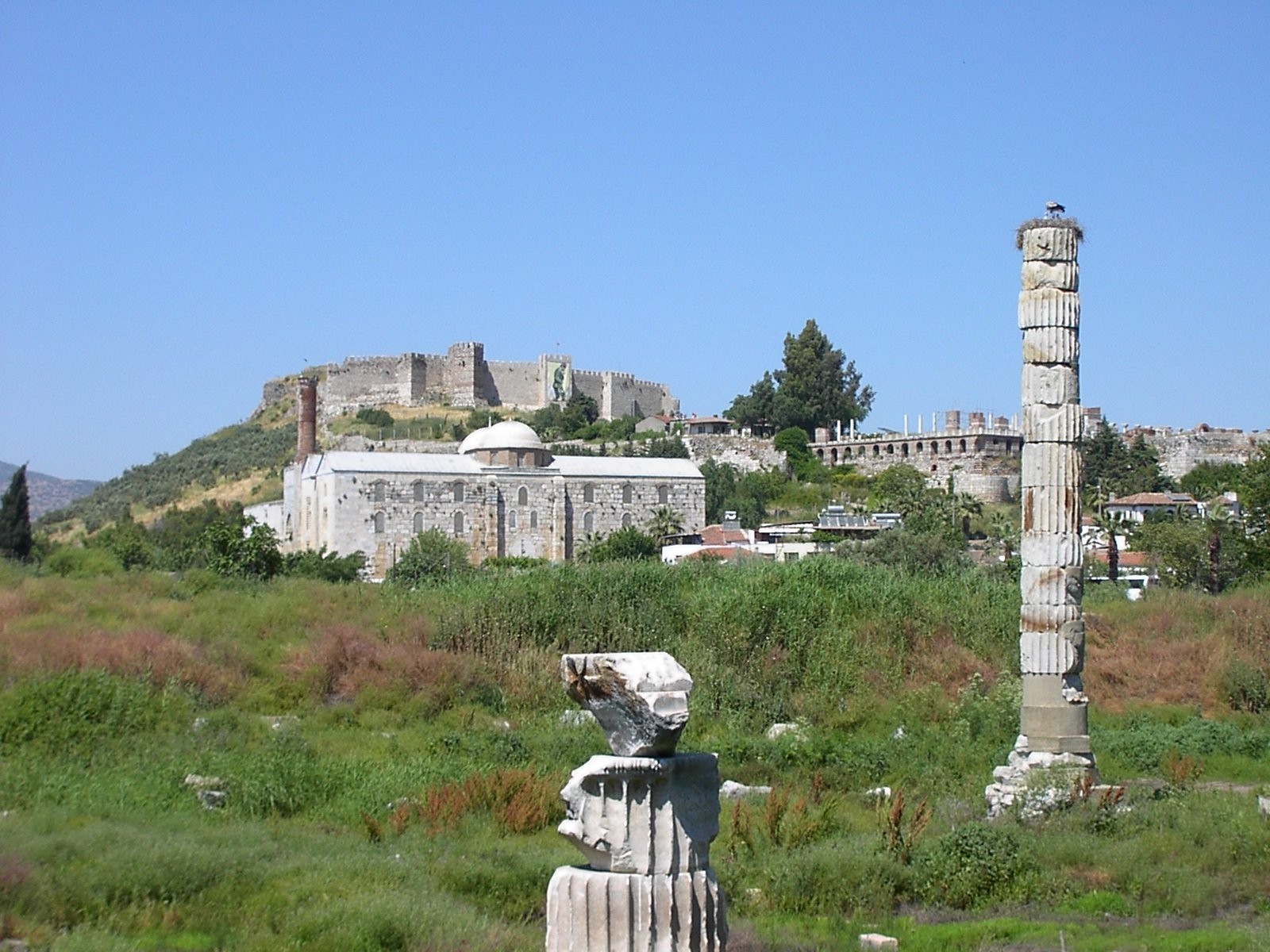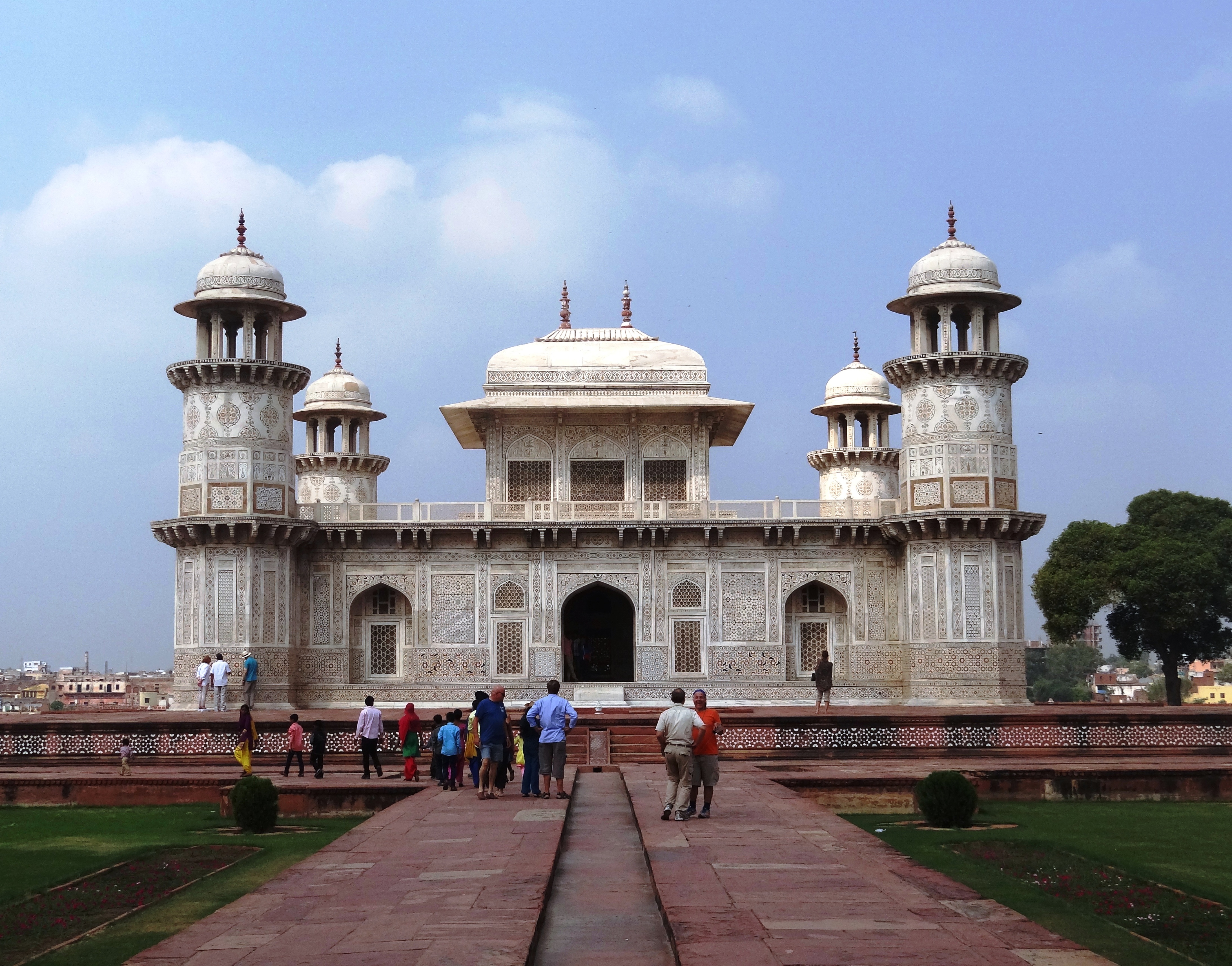|
Ephesian Tale
The ''Ephesian Tale of Anthia and Habrocomes'' ( el, Ἐφεσιακά or Τὰ κατὰ Ἀνθίαν καὶ Ἁβροκόμην) by Xenophon of Ephesus is an Ancient Greek novel written before the late 2nd century AD. Translator Graham Anderson sees the ''Ephesiaca'' as "a specimen of penny dreadful literature in antiquity." Moses Hadas, an earlier translator, takes a slightly different view: "If ''An Ephesian Tale'' is an absorbing tale of love and improbable adventure, it is also a tract to prove that Diana of the Ephesians (who was equated with Isis) cares for her loyal devotees." Because of its shortness and other factors, some scholars maintain that the version we have is merely an epitome of a longer work. The ''Suda,'' a 10th-century Medieval Greek historical encyclopedia, describes the novel as having ten books when the version we have is divided into five. But Anderson suggests that "we may well find that our version is one of not two but a multiplicity of retelling ... [...More Info...] [...Related Items...] OR: [Wikipedia] [Google] [Baidu] |
Tomb
A tomb ( grc-gre, τύμβος ''tumbos'') is a repository for the remains of the dead. It is generally any structurally enclosed interment space or burial chamber, of varying sizes. Placing a corpse into a tomb can be called ''immurement'', and is a method of final disposition, as an alternative to cremation or burial. Overview The word is used in a broad sense to encompass a number of such types of places of interment or, occasionally, burial, including: * Architectural shrines – in Christianity, an architectural shrine above a saint's first place of burial, as opposed to a similar shrine on which stands a reliquary or feretory into which the saint's remains have been transferred * Burial vault – a stone or brick-lined underground space for multiple burials, originally vaulted, often privately owned for specific family groups; usually beneath a religious building such as a church ** Cemetery ** Churchyard * Catacombs * Chamber tomb * Charnel house * ... [...More Info...] [...Related Items...] OR: [Wikipedia] [Google] [Baidu] |
Antioch
Antioch on the Orontes (; grc-gre, Ἀντιόχεια ἡ ἐπὶ Ὀρόντου, ''Antiókheia hē epì Oróntou'', Learned ; also Syrian Antioch) grc-koi, Ἀντιόχεια ἡ ἐπὶ Ὀρόντου; or Ἀντιόχεια ἡ ἐπὶ Δάφνῃ "Antioch on Daphne"; or "Antioch the Great"; la, Antiochia ad Orontem; hy, Անտիոք ''Antiokʽ''; syr, ܐܢܛܝܘܟܝܐ ''Anṭiokya''; he, אנטיוכיה, ''Anṭiyokhya''; ar, أنطاكية, ''Anṭākiya''; fa, انطاکیه; tr, Antakya. was a Hellenistic, and later, a Biblical Christian city, founded by Seleucus I Nicator in 300 BC. This city served as the capital of the Seleucid Empire and later as regional capital to both the Roman and Byzantine Empire. During the Crusades, Antioch served as the capital of the Principality of Antioch, one of four Crusader states that were founded in the Levant. Its inhabitants were known as ''Antiochenes''; the city's ruin lies on the Orontes River, near Antaky ... [...More Info...] [...Related Items...] OR: [Wikipedia] [Google] [Baidu] |
Torture
Torture is the deliberate infliction of severe pain or suffering on a person for reasons such as punishment, extracting a confession, interrogational torture, interrogation for information, or intimidating third parties. definitions of torture, Some definitions are restricted to acts carried out by the state, but others include non-state organizations. Torture has been carried out since ancient times. In the eighteenth and nineteenth centuries, Western countries abolished the official use of torture in the judicial system, but torture continued to be used throughout the world. A variety of methods of torture are used, often in combination; the most common form of physical torture is beatings. Since the twentieth century, many torturers have preferred non-scarring or psychological torture, psychological methods to provide deniability. Torturers are enabled by organizations that facilitate and encourage their behavior. Most victims of torture are poor and marginalized people sus ... [...More Info...] [...Related Items...] OR: [Wikipedia] [Google] [Baidu] |
Flagellation
Flagellation (Latin , 'whip'), flogging or whipping is the act of beating the human body with special implements such as whips, rods, switches, the cat o' nine tails, the sjambok, the knout, etc. Typically, flogging has been imposed on an unwilling subject as a punishment; however, it can also be submitted to willingly and even done by oneself in sadomasochistic or religious contexts. The strokes are typically aimed at the unclothed back of a person, though they can be administered to other areas of the body. For a moderated subform of flagellation, described as ''bastinado'', the soles of a person's bare feet are used as a target for beating (see foot whipping). In some circumstances the word ''flogging'' is used loosely to include any sort of corporal punishment, including birching and caning. However, in British legal terminology, a distinction was drawn (and still is, in one or two colonial territories) between ''flogging'' (with a cat o' nine tails) and ''whippi ... [...More Info...] [...Related Items...] OR: [Wikipedia] [Google] [Baidu] |
Rape
Rape is a type of sexual assault usually involving sexual intercourse or other forms of sexual penetration carried out against a person without their consent. The act may be carried out by physical force, coercion, abuse of authority, or against a person who is incapable of giving valid consent, such as one who is unconscious, incapacitated, has an intellectual disability, or is below the legal age of consent. The term ''rape'' is sometimes used interchangeably with the term ''sexual assault.'' The rate of reporting, prosecuting and convicting for rape varies between jurisdictions. Internationally, the incidence of rapes recorded by the police during 2008 ranged, per 100,000 people, from 0.2 in Azerbaijan to 92.9 in Botswana with 6.3 in Lithuania as the median. [...More Info...] [...Related Items...] OR: [Wikipedia] [Google] [Baidu] |
Syria
Syria ( ar, سُورِيَا or سُورِيَة, translit=Sūriyā), officially the Syrian Arab Republic ( ar, الجمهورية العربية السورية, al-Jumhūrīyah al-ʻArabīyah as-Sūrīyah), is a Western Asian country located in the Eastern Mediterranean and the Levant. It is a unitary state, unitary republic that consists of Governorates of Syria, 14 governorates (subdivisions), and is bordered by the Mediterranean Sea to the west, Turkey to the north, Iraq to Iraq–Syria border, the east and southeast, Jordan to Jordan–Syria border, the south, and Israel and Lebanon to Lebanon–Syria border, the southwest. Cyprus lies to the west across the Mediterranean Sea. A country of fertile plains, high mountains, and deserts, Syria is home to demographics of Syria, diverse ethnic and religious groups, including the majority Syrians, Syrian Arabs, Kurds in Syria, Kurds, Syrian Turkmen, Turkmens, Assyrians in Syria, Assyrians, Armenians in Syria, Armenians, Circa ... [...More Info...] [...Related Items...] OR: [Wikipedia] [Google] [Baidu] |
Slavery
Slavery and enslavement are both the state and the condition of being a slave—someone forbidden to quit one's service for an enslaver, and who is treated by the enslaver as property. Slavery typically involves slaves being made to perform some form of work while also having their location or residence dictated by the enslaver. Many historical cases of enslavement occurred as a result of breaking the law, becoming indebted, or suffering a military defeat; other forms of slavery were instituted along demographic lines such as race. Slaves may be kept in bondage for life or for a fixed period of time, after which they would be granted freedom. Although slavery is usually involuntary and involves coercion, there are also cases where people voluntarily enter into slavery to pay a debt or earn money due to poverty. In the course of human history, slavery was a typical feature of civilization, and was legal in most societies, but it is now outlawed in most countries of the ... [...More Info...] [...Related Items...] OR: [Wikipedia] [Google] [Baidu] |
Suicide
Suicide is the act of intentionally causing one's own death. Mental disorders (including depression, bipolar disorder, schizophrenia, personality disorders, anxiety disorders), physical disorders (such as chronic fatigue syndrome), and substance abuse (including alcoholism and the use of and withdrawal from benzodiazepines) are risk factors. Some suicides are impulsive acts due to stress (such as from financial or academic difficulties), relationship problems (such as breakups or divorces), or harassment and bullying. Those who have previously attempted suicide are at a higher risk for future attempts. Effective suicide prevention efforts include limiting access to methods of suicide such as firearms, drugs, and poisons; treating mental disorders and substance abuse; careful media reporting about suicide; and improving economic conditions. Although crisis hotlines are common resources, their effectiveness has not been well studied. The most commonly adopted m ... [...More Info...] [...Related Items...] OR: [Wikipedia] [Google] [Baidu] |
Tyre (Lebanon)
Tyre (; ar, صور, translit=Ṣūr; phn, 𐤑𐤓, translit=Ṣūr, Greek ''Tyros'', Τύρος) is a city in Lebanon, one of the oldest continually inhabited cities in the world, though in medieval times for some centuries by just a tiny population. It was one of the earliest Phoenician metropolises and the legendary birthplace of Europa, her brothers Cadmus and Phoenix, as well as Carthage's founder Dido (Elissa). The city has many ancient sites, including the Tyre Hippodrome, and was added as a whole to UNESCO's list of World Heritage Sites in 1984. The historian Ernest Renan noted that "One can call Tyre a city of ruins, built out of ruins". Today Tyre is the fourth largest city in Lebanon after Beirut, Tripoli, and Sidon. It is the capital of the Tyre District in the South Governorate. There were approximately 200,000 inhabitants in the Tyre urban area in 2016, including many refugees, as the city hosts three of the twelve Palestinian refugee camps in Lebanon: Bu ... [...More Info...] [...Related Items...] OR: [Wikipedia] [Google] [Baidu] |
Phoenicia
Phoenicia () was an ancient thalassocratic civilization originating in the Levant region of the eastern Mediterranean, primarily located in modern Lebanon. The territory of the Phoenician city-states extended and shrank throughout their history, and they possessed several enclaves such as Arwad and Tell Sukas (modern Syria). The core region in which the Phoenician culture developed and thrived stretched from Tripoli and Byblos in northern Lebanon to Mount Carmel in modern Israel. At their height, the Phoenician possessions in the Eastern Mediterranean stretched from the Orontes River mouth to Ashkelon. Beyond its homeland, the Phoenician civilization extended to the Mediterranean from Cyprus to the Iberian Peninsula. The Phoenicians were a Semitic-speaking people of somewhat unknown origin who emerged in the Levant around 3000 BC. The term ''Phoenicia'' is an ancient Greek exonym that most likely described one of their most famous exports, a dye also known as Tyrian ... [...More Info...] [...Related Items...] OR: [Wikipedia] [Google] [Baidu] |
Rhodes
Rhodes (; el, Ρόδος , translit=Ródos ) is the largest and the historical capital of the Dodecanese islands of Greece. Administratively, the island forms a separate municipality within the Rhodes regional unit, which is part of the South Aegean administrative region. The principal town of the island and seat of the municipality is Rhodes. The city of Rhodes had 50,636 inhabitants in 2011. In 2022 the island has population of 124,851 people. It is located northeast of Crete, southeast of Athens. Rhodes has several nicknames, such as "Island of the Sun" due to its patron sun god Helios, "The Pearl Island", and "The Island of the Knights", named after the Knights of Saint John of Jerusalem, who ruled the island from 1310 to 1522. Historically, Rhodes was famous for the Colossus of Rhodes, one of the Seven Wonders of the Ancient World. The Medieval Old Town of the City of Rhodes has been declared a World Heritage Site. Today, it is one of the most popular tourist desti ... [...More Info...] [...Related Items...] OR: [Wikipedia] [Google] [Baidu] |






.jpg)


